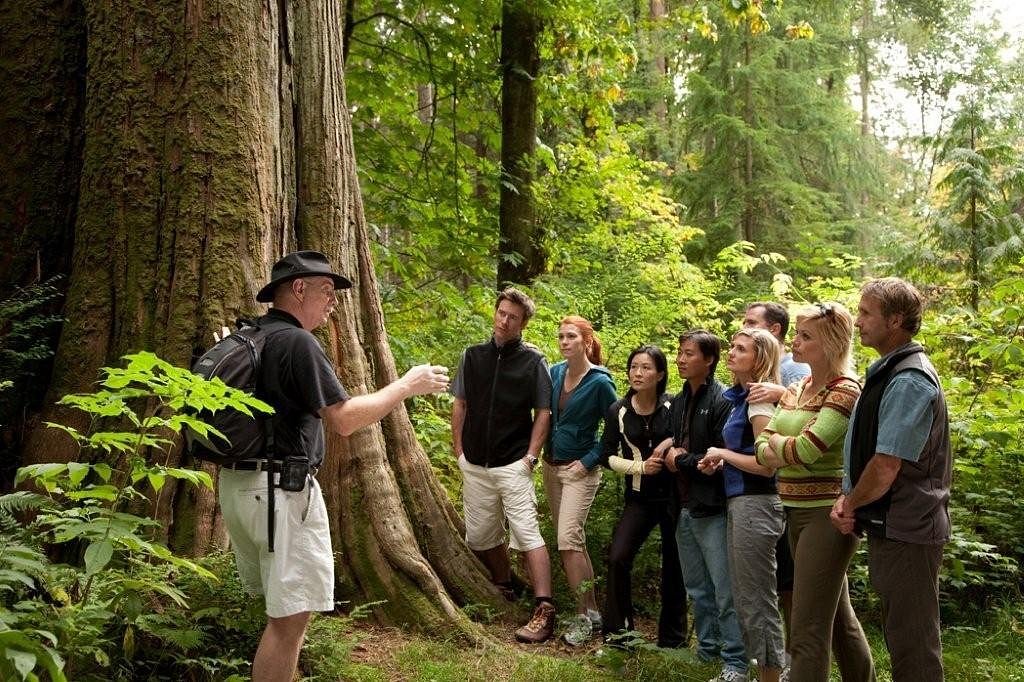
Recent data reveals that the global ecotourism industry is projected to reach USD 251,188.1 million in 2024 and grow to USD 979,128.7 million by 2034, expanding at a 14.6% CAGR. This growth is primarily driven by rising awareness of the environmental impacts of mass tourism and an increasing demand for sustainable travel options.
Travelers are increasingly seeking experiences that promote conservation, empower local communities, and offer authentic cultural exchanges. Government policies supporting sustainable tourism and the preservation of natural and cultural heritage are also driving market expansion. Furthermore, eco-friendly travel experiences that connect travelers with nature, particularly among younger generations such as Millennials, are fueling this growing trend.
The market is also supported by government initiatives promoting sustainable tourism and the development of eco-friendly infrastructure. The economic benefits of ecotourism, including job creation and local economic development, provide additional incentives for communities to adopt sustainable practices, enhancing the overall appeal of ecotourism as a viable market segment.
How is Eco-Longing Tourism Contributing Towards Ecotourism Market Growth?
Tourists can enjoy Eco tours in many forms. There are many ways to make the trip more sustainable. For instance, eco-lodging tourism is expanding its penetration in the market. Eco-tourists choose accommodations that are built by keeping sustainability and environment-friendly attributes in mind. In eco-lodging tourism, one can enjoy staying at various locations from eco-resorts to natural settings or from hostels to hotels made with sustainable materials. Even there is a good opportunity for them to enjoy various ecotourism activities such as hiking, kayaking, or bird watching for the tourists.
People are better aware of sustainable tourism owing to improved access to information via the Internet and various awareness campaigns launched by governments. Ecotourism allows the preservation of the natural environment while facilitating sustainable development for the local communities.
Also, many countries are converting their respective cities into sustainable tourism destinations that not only generate job opportunities but also preserve nature, local culture, and wildlife. Examples of some of these are Dubai, Doha, and Manama.
In the coming years, the demand for eco-longing tourism is expected to rise, creating a conducive environment for ecotourism market growth.
Key Takeaways from the Ecotourism Market Study
- Ecotourism emphasizes the preservation of biodiversity and natural ecosystems, offering travelers opportunities to explore and appreciate unique flora and fauna in their natural habitats.
- Increase in tourism results in a proportionate increase in the other sectors of the economy such as retail and construction.
- Major countries in the Global region, such as the UAE, Saudi Arabia, and Qatar, are undertaking initiatives to transform themselves into ecotourism locations.
- The growth of the ecotourism market is likely to create thousands of new job opportunities for the locals as well as immigrant population. Moreover, growth in ecotourism will indirectly create jobs in supporting business such as hotels, resorts, and transport companies.
- Increased Public-Private Partnerships also provide economic stability in the region. It fosters economic growth through infrastructure development and job creation opportunities.
Who is winning?
Some of the key players operating in the Ecotourism market are China CYTS Tours Holding, Farm To Farm Tours, Royal Arabian Destination Management, A.C.T. Tours, AAA Travel, AGRILYS Voyages, Agriturismo France, AL VERNETO, Altour, American Express Global Business Travel, Bay Farm Tours, BCD Travel, Big Five Tours & Expeditions Inc., Carlson Wagonlit Travel, China Travel, Corporate Travel Management, Direct Travel, Domiruth PeruTravel, Eco Travel and Tourism LLC, Expedia Group and among others.
Companies operating in the industry are increasingly offering unique and immersive experiences, such as wildlife safaris and cultural tours, to attract eco-conscious travelers. Sustainability initiatives, including partnerships with local communities and conservation efforts, are central to their strategies.
Global Ecotourism Market by Category
By Type:
- Nature & Wildlife
- Cultural
- Rural
By Tour Type:
- Independent Traveler
- Tour Group
- Package Traveler
By Tourist Type:
- Domestic
- International
By Consumer Orientation:
- Men
- Women
- Children
By Age Group:
- 15 to 25 Years
- 26 to 35 Years
- 36 to 45 Years
- 46 to 55 Years
- 56 to 65 Years
- 66 to 75 Years
By Region:
- North America
- Latin America
- Europe
- East Asia
- South Asia
- Oceania
- MEA
Report Preview: https://www.futuremarketinsights.com/reports/gcc-ecotourism-market
About Future Market Insights (FMI)
Future Market Insights, Inc. (ESOMAR certified, recipient of the Stevie Award, and a member of the Greater New York Chamber of Commerce) offers profound insights into the driving factors that are boosting demand in the market. FMI stands as the leading global provider of market intelligence, advisory services, consulting, and events for the Packaging, Food and Beverage, Consumer Technology, Healthcare, Industrial, and Chemicals markets. With a vast team of over 400 analysts worldwide, FMI provides global, regional, and local expertise on diverse domains and industry trends across more than 110 countries.
Contact Us:
Future Market Insights Inc.
Christiana Corporate, 200 Continental Drive,
Suite 401, Newark, Delaware – 19713, USA
T: +1-347-918-3531
For Sales Enquiries: sales@futuremarketinsights.com
Website: https://www.futuremarketinsights.com
LinkedIn| Twitter| Blogs | YouTube
